Downhill racing is a game of seconds. It’s that simple. More than any other discipline of mountain biking, its focus is unambiguous, pure, easy to quantify and impossible to perfect. It’s a journey our sport has been on, literally since the birth of the sport itself. That’s why downhill bikes are the most advanced, alien-looking creatures on two wheels. Their evolution has undergone an unnatural acceleration over the decades, and the game of seconds is now a game of fractions of seconds. And that’s why, when we see updates on a bike that competes at the level that the Canyon Sender CFR, those updates may seem subtle at first, but are all the more ingenious because of it.
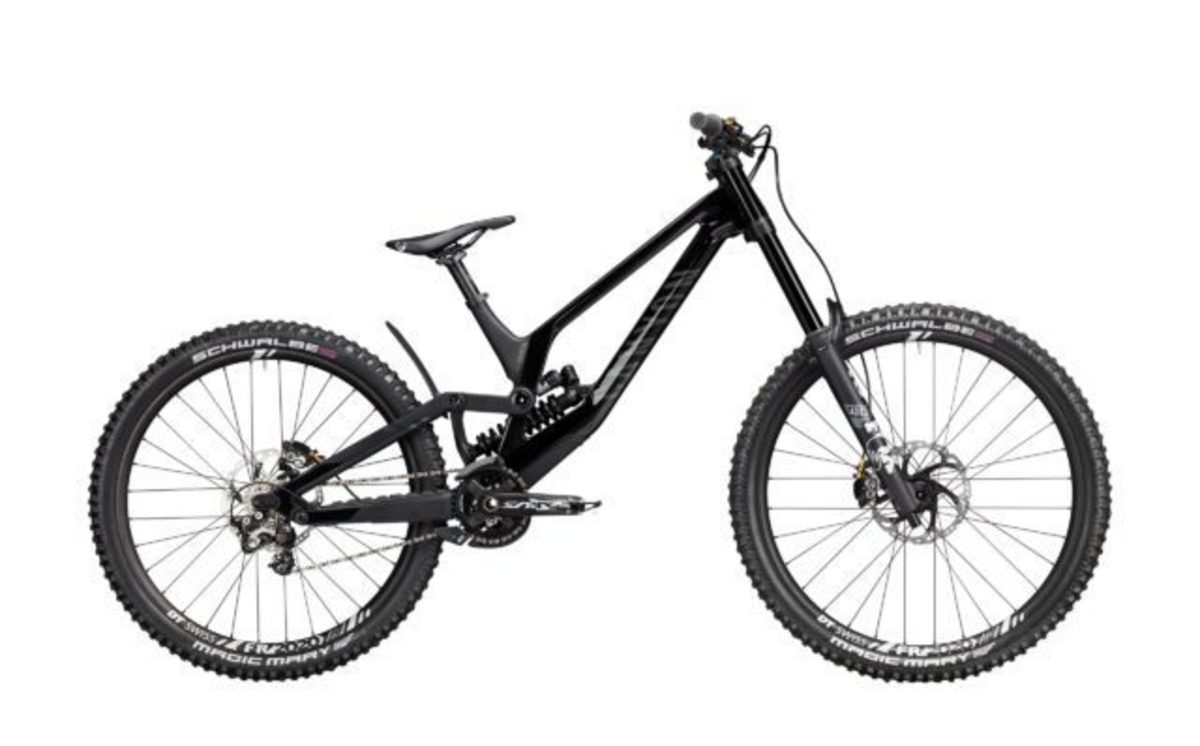
Take the 2021 CFR’s new shock mount. The rear (or “lower”) mount is still is compressed using a similar scissor-like linkage to the previous-generation Sender or, more recently, the new Specialized Demo and Enduro. But it’s been updated to be a bit more progressive. The front (“upper”) shock mount is now lower on the frame, closer to the bottom bracket. It required less reinforcement to find a home there, allowing the front triangle to be a bit lighter and the center of gravity to be a bit lower.
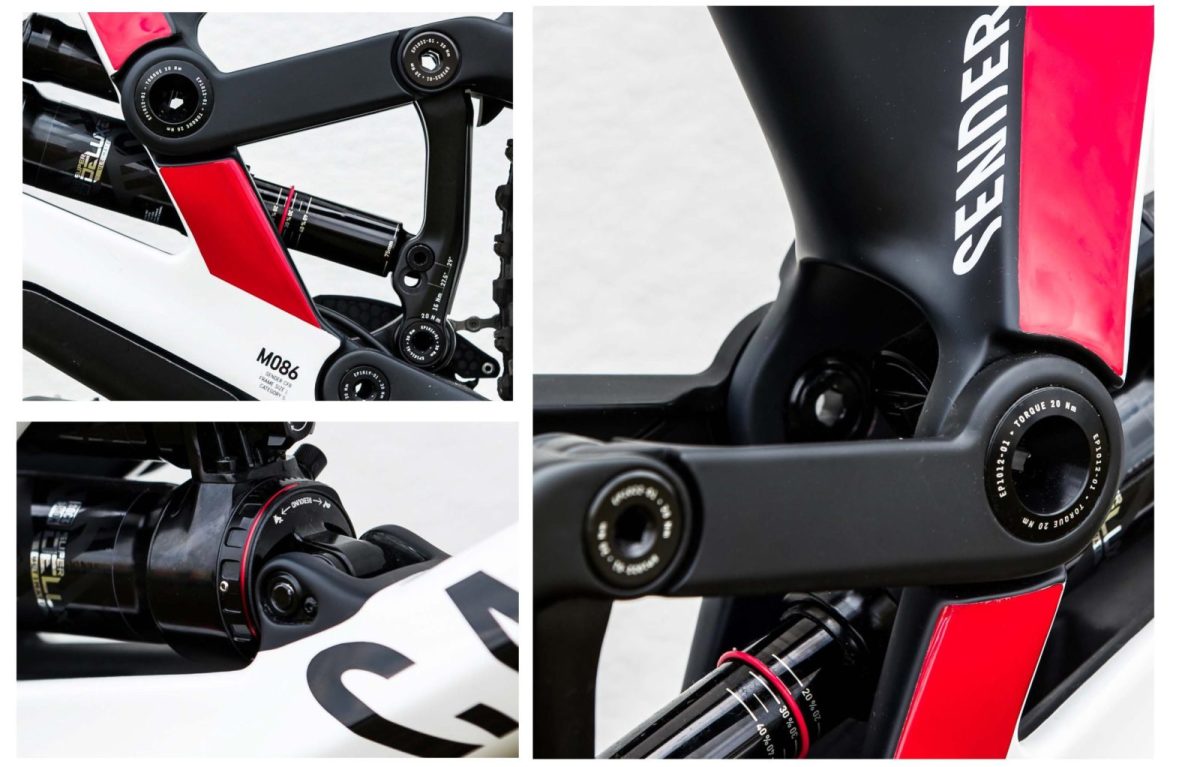
Also lighter, but far more than a bit, are the carbon chainstays and seatstays. Altogether, the frame on the new Sender CFR is 600 grams lighter than the previous generation. And not as a result of Canyon neglecting durability. In fact, special attention was paid to the pivots, all featuring easy to access bolts, threading into easy to replace inserts.
One such insert happens to be an adjustable rear dropout. You can flip a chip that will bring you from a tight and twisty 435-millimeter rear center to a long and… some other L-word 445 millimeters. But that’s only on the small and medium Sender. Those sizes now run mullet setups, while the large and XL are 29-inch only. Yep, the new Canyon Sender CFR is Canyon’s first 29-inch downhill bike. So, I guess not all of the new Sender’s updates are subtle.
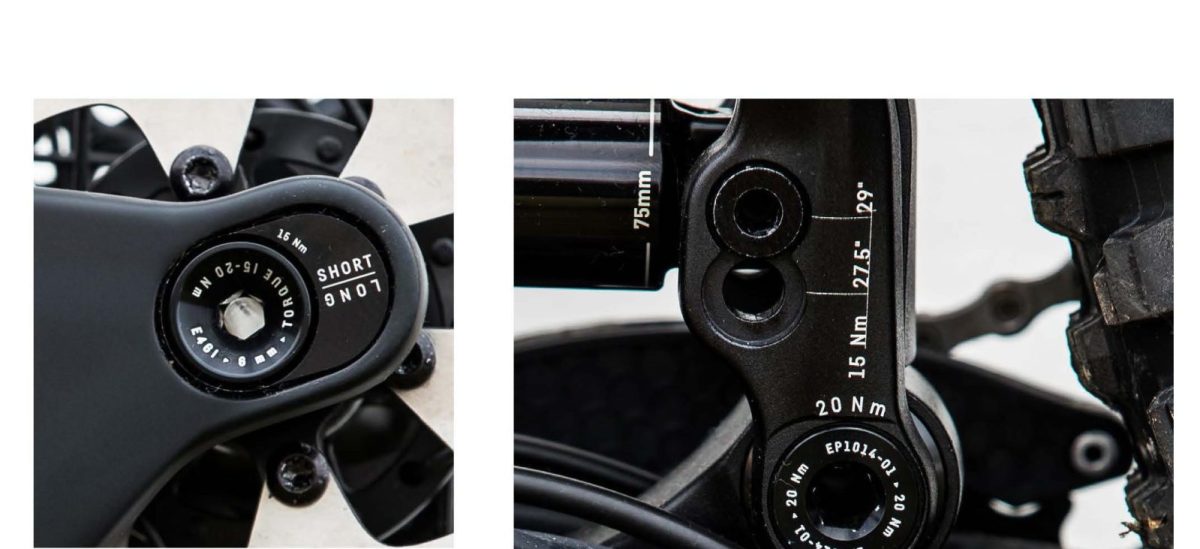
The two smaller sizes aim to offer riders left of the bell curve a little more room in the crotch, while leaving the big rear wheels for the high-of-crotch. Their chainstays go from 445 to 455 millimeters. And if a member of either height range wants to run a rear wheel size Canyon doesn’t offer them out of the box, there’s a shock mount that will keep the bottom bracket height in line after the swap.
There’s a similar adjustability on the opposite end of the bike, where the Canyon Sender uses a headset that allows for eight millimeters for and aft adjustment that actually increases or decreases reach by 8 millimeters. Whether by preference or necessity, it’s a way to find the right fit.
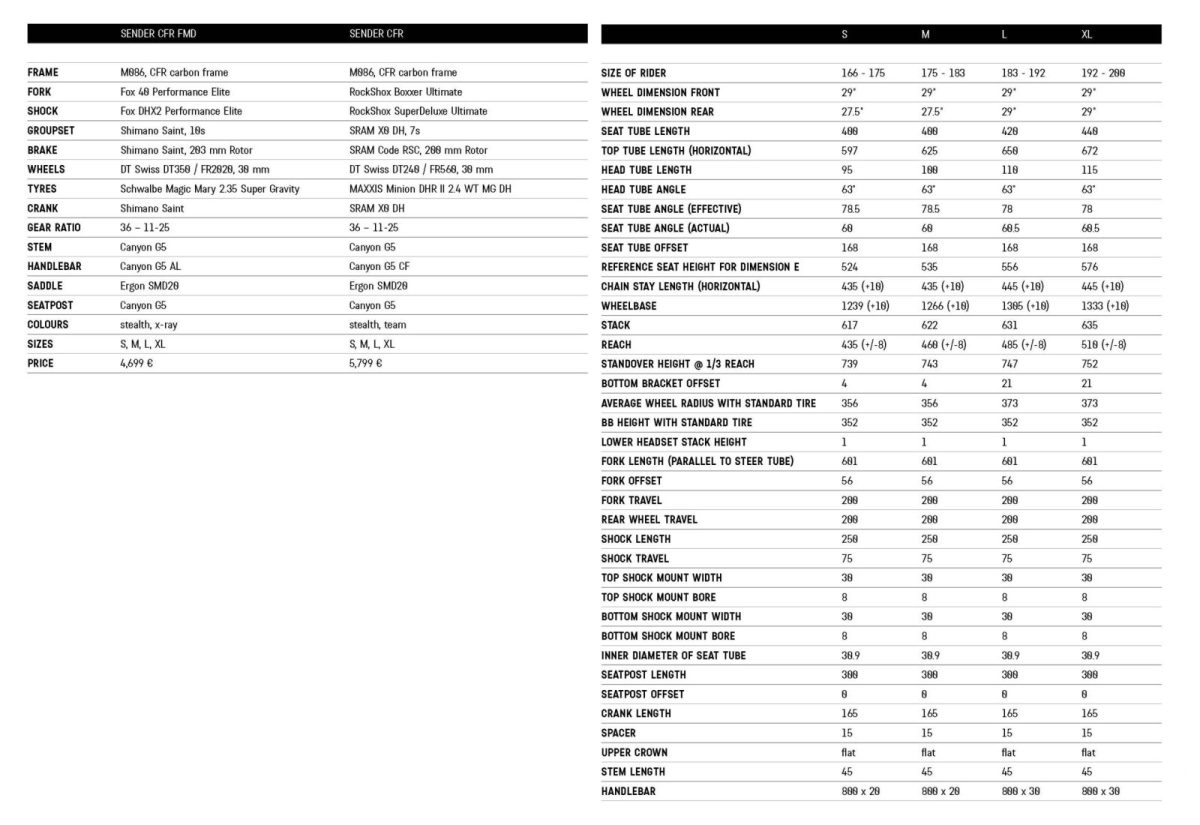
And that fit has changed pretty dramatically. The reach grew by 30 millimeters on the XL, by 15 millimeters on the small and by somewhere inbetween inbetween. But they didn’t mess with a whole lot else, size-wise. Same bottom bracket height, same head tube angle, and just a hair shorter in the head tube to try and offset the ride height of the larger front wheel.
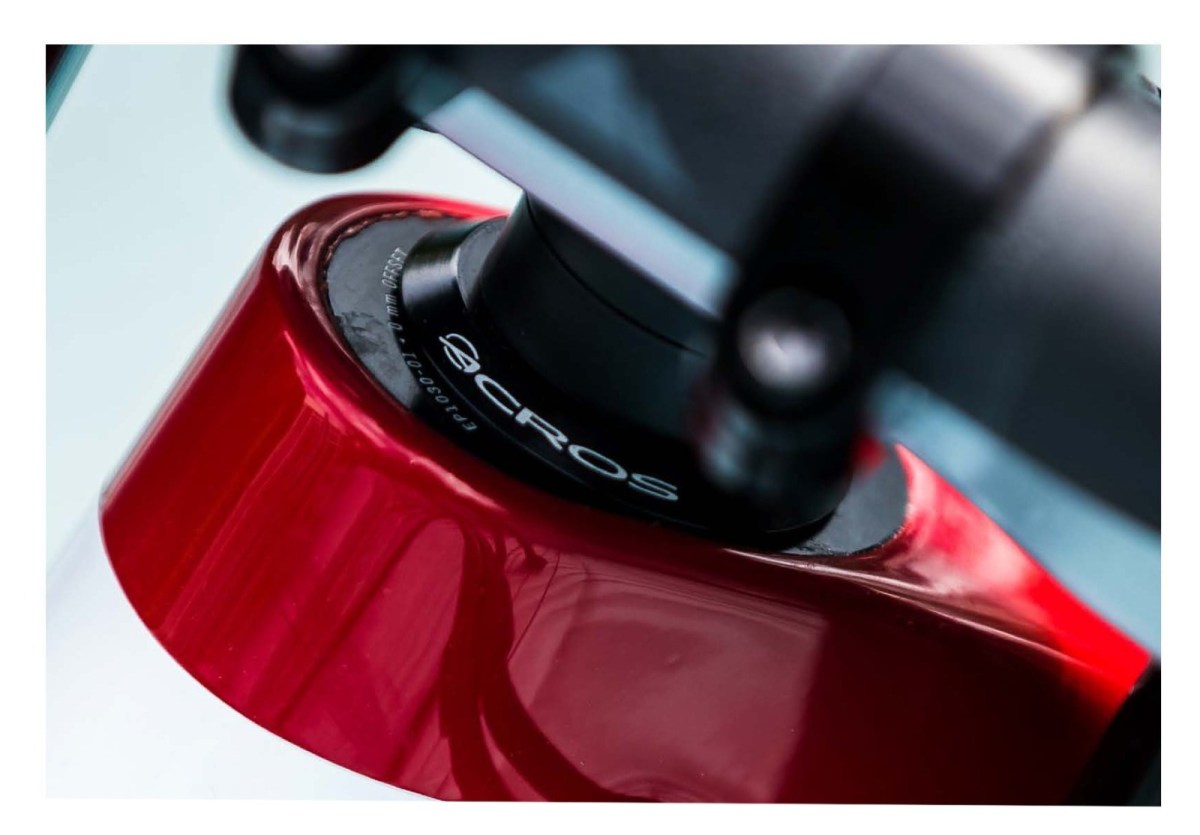
There are only two builds in the Sender CFR, one for SRAM loyalists and one for Shimano loyalists. The SRAM build runs on a Boxxer and Super Deluxe Ultimates, XO DH drivetrain, Code RSC brakes and DT 240 hubs and 560 rims and goes for $5,800. The Shimano build runs on a Fox 40 Performance Elite fork, DHX2 coil shock, Saint drivetrain and brakes and DT 350 hubs and 2020 rims, and comes in at a pretty damn impressive $4,700. There’s no aluminum version, no heavier carbon version. These are for racing. That’s what the R stands for.
Bikes are available in Europe today, and will hit U.S. shores soon and you can keep tabs at canyon.com/usa
This article originally appeared on Bikemag.com and was republished with permission.
from Men's Journal https://ift.tt/33Oc7sD
via IFTTT








0 comments:
Post a Comment